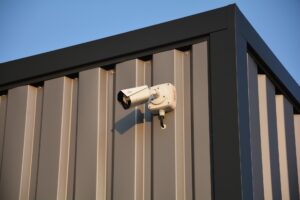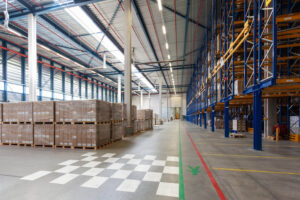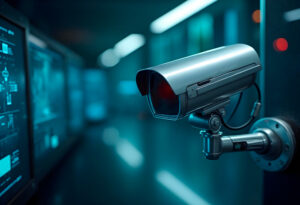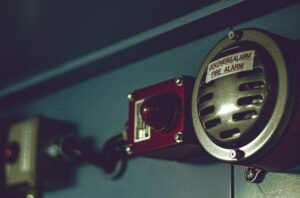Following the recent incident at Liverpool Women’s Hospital, numerous healthcare facilities are re-evaluating their security systems. This event has sparked important discussions about how hospitals can best safeguard patients, staff, and visitors at all times. With constant advancements in technology, hospitals are now considering enhanced security systems to address these concerns. The incident has served as a significant prompt for change, with the NHS advising healthcare facilities to review and improve security measures across the board.
This blog provides a concise overview of hospital security systems, exploring why they are critical and which strategies are most effective for ensuring the safety of healthcare premises. For tailored guidance on security installation, reach out to AI Security for a consultation today.
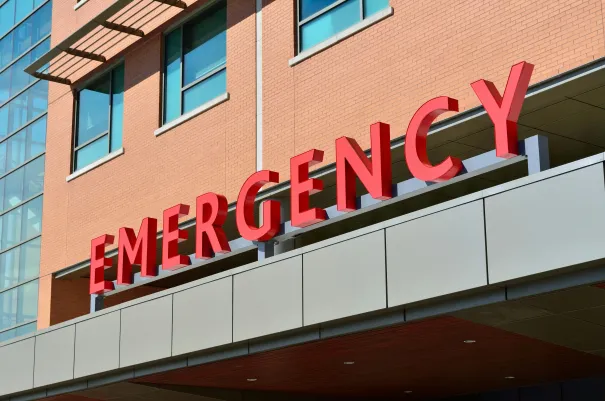
Key Takeaways:
- A well-implemented security system in hospitals enhances patient safety, ensures data protection, and maintains a secure environment for staff.
- Modern hospital security systems integrate access control, surveillance, and alarm systems to monitor all areas, including restricted sones.
- Properly maintained security systems help prevent unauthorised access, theft of medical supplies, and potential data breaches.
Ensuring Safety: The Importance of a Security System in Hospitals
Ensuring safety in hospitals is critical to protecting both patients and staff, and a well-designed security system plays a vital role in achieving this. Hospitals are bustling environments with vulnerable individuals, expensive medical equipment, and sensitive information, making them potential targets for theft, unauthorised access, and other security threats. A comprehensive security system helps monitor access points, track movements within the facility, and provide rapid responses to emergencies. From surveillance cameras and alarm systems to controlled entry points and security personnel, these measures not only safeguard physical assets but also enhance patient privacy and peace of mind. In an environment where safety is paramount, implementing an effective security system ensures that hospitals can operate smoothly while minimising risks, thereby protecting lives and maintaining trust in healthcare services. Ultimately, investing in robust security measures fosters a safe and secure atmosphere conducive to quality patient care
The Importance of Security Systems in Hospitals
Hospitals and healthcare facilities face unique security challenges that make robust protection vital. Effective security measures are crucial, especially given the additional difficulties posed by the pandemic. Ensuring that each healthcare facility is equipped with the best security system is more critical now than ever. Below, we discuss key security strategies and why they are essential to maintaining a safe environment in healthcare settings.
Security System Challenges in Healthcare Facilities
Healthcare facilities face a distinct set of challenges when implementing security systems. The large scale of hospitals, along with a steady influx of visitors, presents a number of security risks. Healthcare providers must ensure that their security system in hospitals is not only comprehensive but also highly effective.
In addition to ensuring patient safety, hospitals must also protect valuable equipment and sensitive data. From IT systems to personal possessions, there is a constant need for high-quality security technology to secure these assets. A well-integrated security system in hospitals is crucial for safeguarding both people and property.
Hospital Security Systems
Access Control Systems
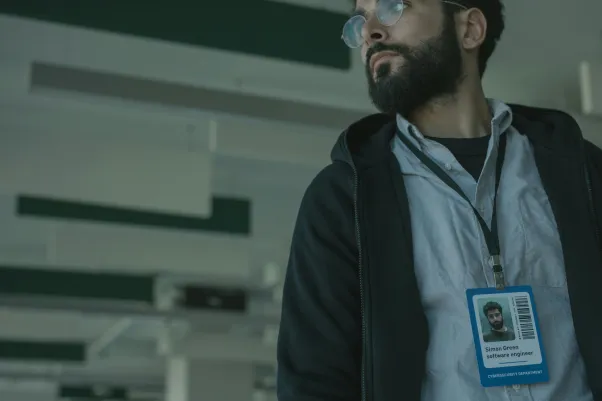
Access control systems are one of the most efficient ways to monitor who enters and exits hospital premises. With various technologies, including audio systems and PIN codes, access to high-risk areas can be limited to authorised personnel. A key advantage of access control systems is their integration with alarms, providing enhanced safety in emergencies. Such a security system in hospitals ensures that patients, staff, and equipment are kept secure.
CCTV
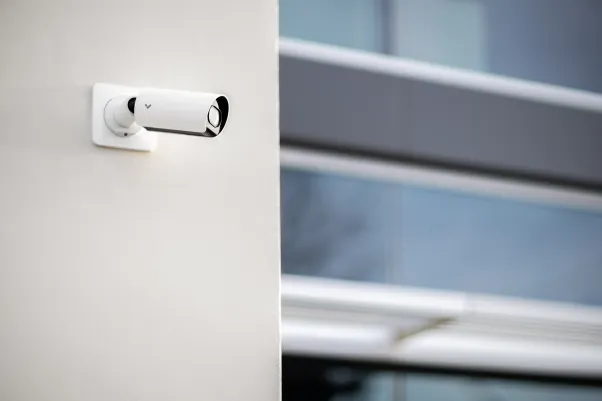
CCTV is a widely implemented security measure that enables comprehensive monitoring of hospital grounds. Continuous recording helps identify potential threats before they escalate. CCTV allows you to notice something going awry before it gets out of control. However, installing CCTV in healthcare facilities requires careful consideration of patient privacy. Despite this, CCTV remains a critical component of any security system in hospitals, helping to prevent and record incidents.
Alarms
Alarms are essential in any large-scale facility, and hospitals are no exception. From fire alarms to security alerts, these systems are vital for informing staff and visitors of emergencies. The inclusion of alarms within a hospital’s security system is crucial for responding promptly to various threats and ensuring the protection of all on-site.
Gates/Barriers
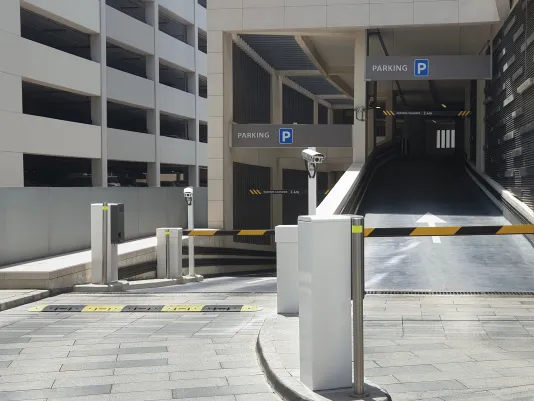
One of the most foundational levels of security a healthcare facility needs to consider is safe gates and barriers. Constructing fencing around the entire precinct allows for a secure border, limiting those coming in and out. Security gates can be adapted to fit the unique needs of healthcare facilities, such as installing gate automation for staff, which ensures entry is simple for those who need it and appropriately measured to limit those who don’t.
Covid Measures
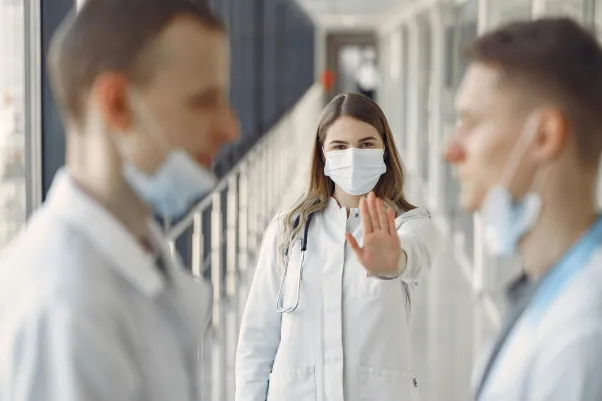
In the wake of the pandemic, healthcare facilities have had to address new security concerns. Systems like InVentry provide comprehensive visitor management solutions, including temperature checks and ID verification. These measures not only help mitigate health risks but also enhance the overall security system in hospitals by keeping a detailed record of those entering the premises.
Consultation for Your Hospital’s Security Needs
When it comes to healthcare, ensuring the safety of all patients, staff, and visitors is of paramount importance. Hospitals house significant quantities of expensive equipment, making them attractive targets for criminals. Implementing an effective security system in hospitals is essential to maintaining a safe environment.
For expert advice on how to improve your hospital’s security, contact AI Security today. By acting swiftly, you can have peace of mind knowing that your facility is fully protected.
SECURE YOUR HOSPITAL OR MEDICAL FACILITY
Hospital Security FAQs
What security measures do hospitals use?
Hospitals implement various security measures, including surveillance cameras, access control systems, and trained security officers. Alarms and visitor management systems are also commonly used to monitor and secure the premises.
What is a hospital surveillance system?
A surveillance system in hospitals involves the use of cameras to monitor activities across the facility. It helps deter crime and ensures safety by recording incidents in areas such as entrances, hallways, and parking lots.
What types of alarms are used in hospitals?
Hospitals utilise several types of alarms, including fire alarms, security alarms, panic alarms, and medical alarms. These systems are essential for alerting staff to emergencies and maintaining the safety of everyone within the hospital.
What is an ADT system?
In a hospital setting, an ADT (Admission, Discharge, and Transfer) system is a tool used to track patient movements throughout the facility. It ensures real-time updates to patient records, giving healthcare providers access to the most up-to-date information. This system plays a crucial role in managing patient care, bed availability, and overall hospital operations.
What is security in healthcare?
Security in healthcare involves establishing and implementing policies, procedures, and practices to safeguard patients, staff, visitors, and physical assets. It includes:
- Risk Management: Identifying and addressing security risks.
- Emergency Response: Developing strategies to handle emergencies like natural disasters, violence, or cyber threats.
- Compliance: Ensuring adherence to regulations such as data protection laws.
- Training: Providing staff with the necessary training on security protocols and best practices.
What is safety and security in healthcare?
Safety and security in healthcare focuses on protecting patients, staff, and visitors from harm, whether physical, emotional, or environmental. Key areas include:
- Patient Safety: Delivering medical care in a manner that reduces risks to patients.
- Workplace Safety: Ensuring the protection of healthcare workers from injuries, infections, or violence.
- Environmental Safety: Maintaining a clean, secure, and safe environment for all within the facility.
- Data Security: Securing patient information from unauthorised access or breaches, which is a critical aspect of any security system in a hospital.
What is the UK health insurance?
The UK health insurance system is largely represented by the National Health Service (NHS), which offers healthcare services to residents at little or no cost, funded through taxation. While most care is free at the point of use, some opt for private health insurance to access faster treatments or private care. Private health insurance serves as a complement to NHS services.
What is the best alarm for the elderly?
The ideal alarm for elderly individuals depends on their specific needs, with some popular choices being:
- Pendant Alarms: Worn on the neck or wrist, these allow the user to call for assistance in emergencies.
- Fall Detection Alarms: Automatically alert caregivers or emergency services in case of a fall.
- GPS Trackers: Especially helpful for elderly people with dementia, allowing caregivers to track their location.
- Two-Way Communication Alarms: Enables communication with a caregiver or monitoring centre directly through the device.
What are the types of clinical alarms?
Clinical alarms alert healthcare staff to various conditions or emergencies. Common types include:
- Physiological Alarms: Triggered by changes in a patient’s vital signs, such as heart rate or blood pressure.
- Technical Alarms: Related to equipment malfunctions, like a ventilator issue.
- Emergency Alarms: For life-threatening situations, like a cardiac arrest (e.g., Code Blue).
- Reminder Alarms: Used for scheduled tasks like medication administration.
Do NHS hospitals have security?
Yes, NHS hospitals have security measures, which typically include:
- Security Personnel: On-site officers who patrol the hospital and handle incidents.
- CCTV Surveillance: Cameras to monitor activity and deter criminal behaviour.
- Access Control: Systems that limit access to sensitive areas.
- Alarm Systems: Covering fire, unauthorised access, and other emergencies.
- Visitor Management: Systems to track and manage who enters the hospital.
What is the alert system for hospitals?
Hospital alert systems are used to communicate emergencies or urgent situations to staff. They include:
- Code Alerts: Specific codes such as “Code Blue” for cardiac arrest or “Code Red” for fire.
- Overhead Paging Systems: For emergency announcements or patient-related alerts.
- Digital Alerts: Notifications via computers or mobile devices to inform staff of critical events, like patient deterioration or system failures.
A comprehensive security system in hospital settings not only includes physical measures but also integrates with digital tools like alert systems and data security protocols to ensure the safety of all.
Ensure the safety and security of your hospital with a top-tier security system designed specifically for healthcare environments. From access control to surveillance, our systems provide comprehensive protection for patients, staff, and assets. For expert advice or a customised solution, contact AI-Security at Vigilant House, 1155 London Road, Leigh-on-Sea, SS9 3JE, or give us a call at 01702 476 700. Take the first step in enhancing your hospital’s security today!
Conclusion
implementing a robust security system in a hospital is not just a safeguard for property, but a vital component for ensuring the safety of patients, staff, and sensitive medical data. Hospitals, being highly sensitive environments, require advanced security measures to prevent unauthorised access, protect against cyber threats, and respond effectively to emergencies. With the right security system in place, hospitals can maintain a safe, secure environment while providing quality care. Are you ready to enhance the security of your healthcare facility? Consider investing in a professional security system to protect what matters most.
FAQs:
Q: Why is a security system important in hospitals?
A: Hospitals contain sensitive patient information, high-value medical equipment, and pharmaceuticals. A robust security system protects against unauthorised access, theft, and ensures patient and staff safety.
Q: What components should a hospital security system include?
A: A comprehensive hospital security system should include video surveillance, access control, alarm systems, and integration with emergency protocols to cover all critical areas.
Q: How can a security system improve hospital operations?
A: An effective security system ensures smooth operations by reducing potential risks, enabling staff to focus on patient care, and maintaining regulatory compliance for healthcare facilities.
